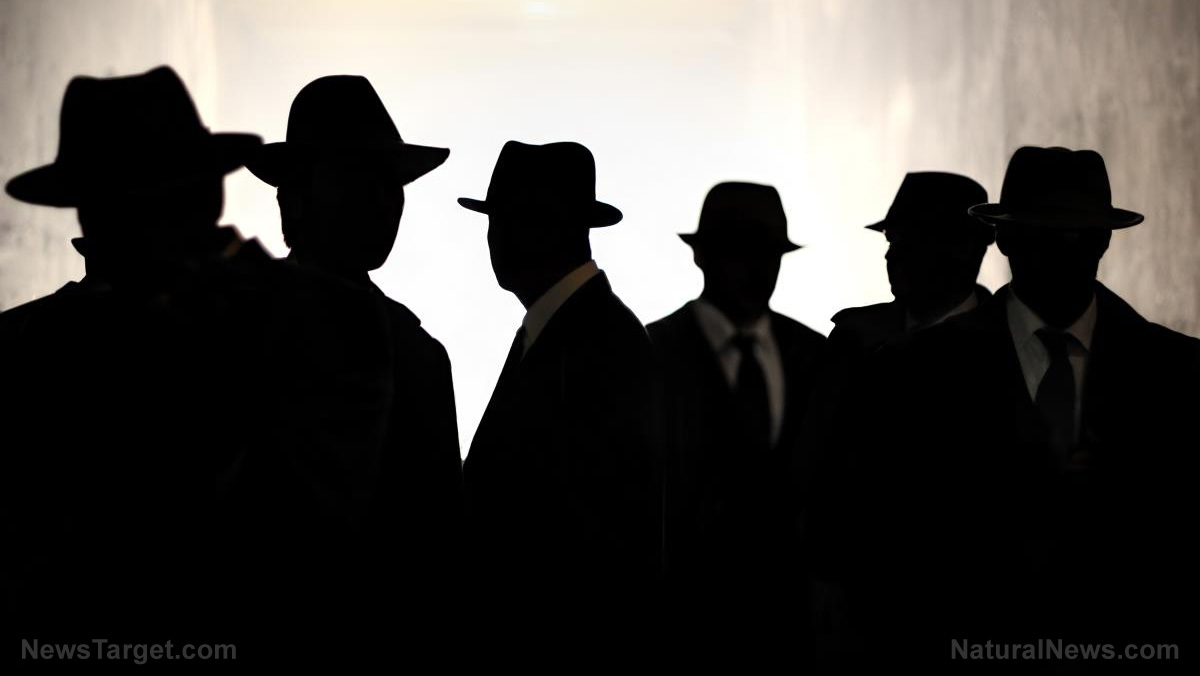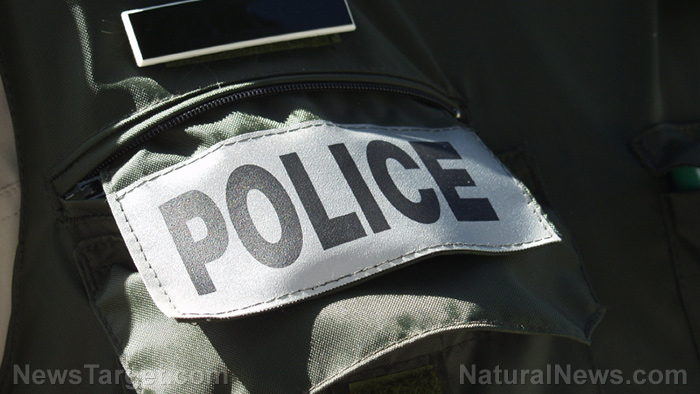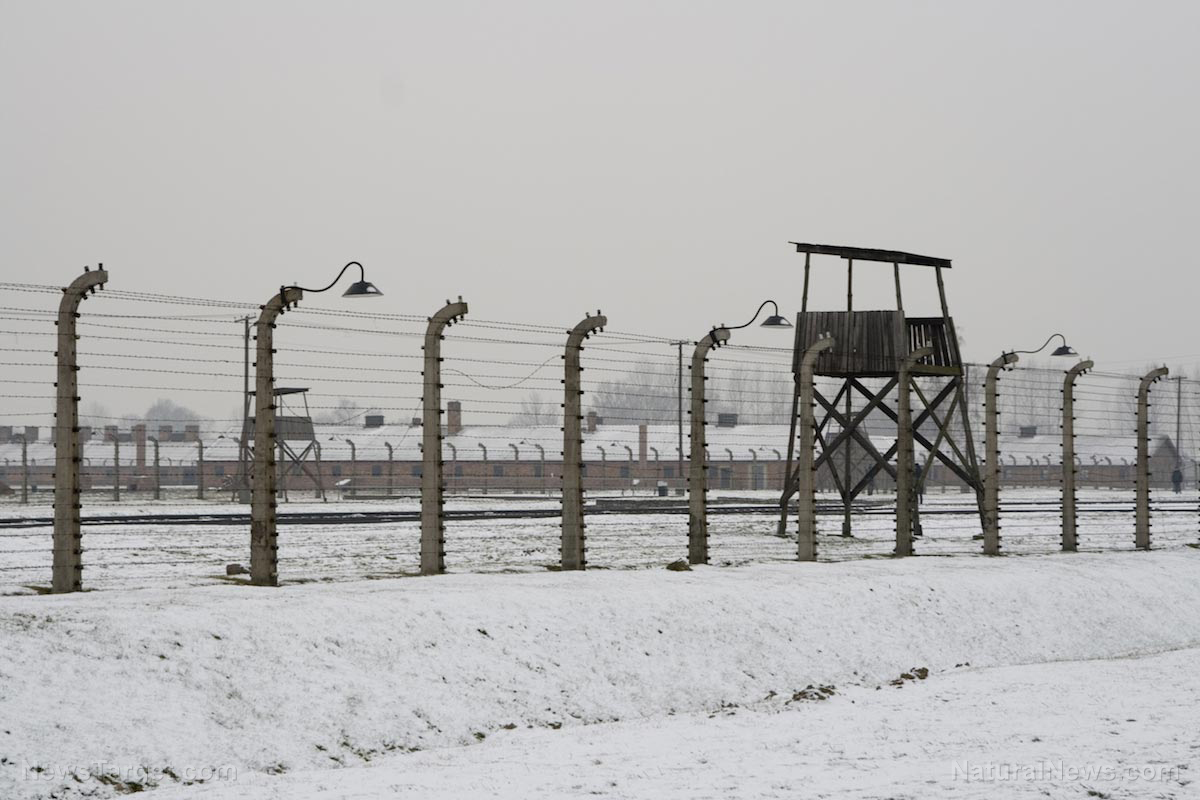Federal law authorized ‘covert agents’ within the US weeks before COVID-19
12/06/2021 / By News Editors

A federal law change just weeks before COVID-19 hit America changed the definition of “covert agents” to include those who live and act in the United States – raising new questions about the government’s classified national security “exercises” and possible falsification of the COVID crisis.
(Article by Robert L. Kinney III republished from LifeSiteNews.com)
Previous articles discussed information which suggests that the COVID-19 pandemic may be a hoax, ruse, ploy, covert operational exercise, or national security exercise. Possibly the most significant supporting information includes a 2019 national security law change which legalizes specifically “emerging threat” national exercises, some which apparently may be classified information and therefore would likely be covert.
Another is a major change to U.S. federal laws which govern the definition and labeling of “vaccines” which seemingly allowed for mRNA substances to be labeled as “vaccines” rather than being required to be labeled as something other than vaccines or rejected altogether. That change was made only a few weeks before the reported outbreak of COVID-19.
Those major changes to U.S. federal law, along with several other statements found in U.S. pandemic, public health, biodefense, and national security laws, plans, and strategies, may lead the reasonable person to conclude that COVID-19 might be one of the biggest hoaxes ever propagated.
There is still more information which supports that claim, though. If COVID-19 is some sort of national or operational exercise, it would probably be a “classified exercise” (page 11) or “covert.” Much of the covertness of the operation would be at the level of providing public information – such as falsified counts of coronavirus cases, hospitalizations, and deaths.

While much may be unknown about the potentially large numbers of covert agents in the United States, it might be reasonably suggested that most are employed by U.S. government entities with intelligence agencies such as the FBI or Department of Homeland Security.
But to successfully fool America with a falsified pandemic covert national security exercise or operational exercise, many people acting as covert agents who typically would not act as covert agents would probably be required. These would probably be non-employees of U.S. intelligence agencies acting as sources of operational assistance. Some examples could be public health officials at entities like the U.S. CDC or the NIH, politicians like governors who would be tasked with causing public fear, and those persons involved with providing (in the potential scenario of COVID-19 being a hoax) the falsified coronavirus cases, hospitalizations, and deaths.
Of course, such persons would undoubtedly want to be guaranteed to be protected by U.S. federal law if they were informed ahead of time of their potential involvement in one of the biggest hoaxes in the history of the world – especially due to the operation’s potential to meet U.S. federal law definition of “domestic terrorism.”
But a covertly falsified pandemic operational exercise would require a large amount of deception. There is a principle which is said to be used by intelligence analysts about deceptive governments which is helpful to know, whether the acting entity is an adversary or merely the U.S. government in general:
Intelligence analysts work on the assumption…that as an adversary moves towards his true operational goal, his preparations to do so well serve as tip-offs clarifying his intent. (Page 5)
Thus, a reasonable person might look at U.S. federal laws governing “covert agents” prior to COVID-19 to see if any preparations were made which serve as “tip-offs,” suggest the intent of providing more protection for covert agents in the U.S., and also signal potential plans by the government for a falsified pandemic as a classified operational exercise.
Quiet 2019 law change expanded definition of ‘covert agents’
Sure enough, there is a huge tip-off which suggests the possibility that the U.S. government intelligence and national security entities were planning an operation requiring covert agents acting in the U.S.
A U.S. federal law definition of “covert agent,” which apparently had not been changed since 1947, was changed only a few weeks before the reported outbreak of COVID-19. The significant law change is found in The National Defense Authorization Act for Fiscal Year 2020, which was enacted on December 20, 2019. To understand the huge significance of the law change, it is required to first know what the law read prior to the change. The law which was apparently in the books since 1947 was as follows (also found here):
(4)The term “covert agent” means—
(A) a present or retired officer or employee of an intelligence agency or a present or retired member of the Armed Forces assigned to duty with an intelligence agency—
(i) whose identity as such an officer, employee, or member is classified information, and
(ii) who is serving outside the United States or has within the last five years served outside the United States; or
(B) a United States citizen whose intelligence relationship to the United States is classified information, and—
(i) who resides and acts outside the United States as an agent of, or informant or source of operational assistance to, an intelligence agency, or
(ii) who is at the time of the disclosure acting as an agent of, or informant to, the foreign counterintelligence or foreign counterterrorism components of the Federal Bureau of Investigation; or
C) an individual, other than a United States citizen, whose past or present intelligence relationship to the United States is classified information and who is a present or former agent of, or a present or former informant or source of operational assistance to, an intelligence agency. (Emphasis added)
The December of 2019 change to the above U.S. federal law is written as follows:
SEC. 5303. EXPANSION OF SCOPE OF PROTECTIONS FOR IDENTITIES OF COVERT AGENTS.
Section 605(4) of the National Security Act of 1947 (50 U.S.C. 3126(4)) is amended— (1) in subparagraph (A)— (A) by striking clause (ii); (B) in clause (i), by striking ‘‘, and’’ and inserting ‘‘; or’’; and (C) by striking ‘‘agency—’’ and all that follows through ‘‘whose identity’’ and inserting ‘‘agency whose identity’’; and (2) in subparagraph (B)(i), by striking ‘‘resides and acts outside the United States’’ and inserting ‘‘acts’’. (133 STAT. 2119)
For this article, it is unnecessary to closely study the wording in the change, which for most people (including politicians voting on passing law changes) is probably difficult to follow. The main point of focus should be on the major differences before and after the December of 2019 change. The new law reads as follows:
(4) The term “covert agent” means—
(A) a present or retired officer or employee of an intelligence agency or a present or retired member of the Armed Forces assigned to duty with an intelligence agency whose identity as such an officer, employee, or member is classified information; or
(B) a United States citizen whose intelligence relationship to the United States is classified information, and—
(i) who acts as an agent of, or informant or source of operational assistance to, an intelligence agency, or
(ii) who is at the time of the disclosure acting as an agent of, or informant to, the foreign counterintelligence or foreign counterterrorism components of the Federal Bureau of Investigation; or
(C) an individual, other than a United States citizen, whose past or present intelligence relationship to the United States is classified information and who is a present or former agent of, or a present or former informant or source of operational assistance to, an intelligence agency. (50 U.S. Code § 3126)
Now, closely study the before-and-after. Notice the huge change which may be a tip-off of the intent of the U.S. federal government for a future operation requiring covert agents in the United States? Up until only a few weeks before COVID-19, U.S. federal law in part defined U.S. citizen non-employees of intelligence agencies as “covert agents” if they resided and acted outside of the United States.
The December of 2019 law change now includes U.S. citizen non-employees of intelligence agencies in the definition of “covert agents” if they reside and act in the U.S. “as an agent of, or informant or source of operational assistance to, an intelligence agency.”
And what does the new legal definition of “covert agent” in that U.S. federal law suggest? It suggests several things, but mainly, it suggests the possibility of an “operational goal” of utilizing both employees of intelligence agencies and non-employees of U.S. intelligence agencies who reside in the U.S. to act “as a source of operational assistance” to intelligence agencies in the U.S. for potential future operations. Those operations apparently may include “classified exercises.” (Page 11)
In other words, the December of 2019 law change suggests that the U.S. federal government intelligence agencies could have been preparing for a major operation in the U.S. which would require non-employees of intelligence agencies to act as “covert agents” or sources of “operational assistance” to an intelligence agency national security exercise or operational exercise.
US national security program may include ‘classified exercises’
Here it is necessary to mention the U.S. federal government’s National Exercise Program which, as mentioned previously, may include exercises to determine the United States’ preparedness for “emerging threats.” Such “emerging threats” would apparently include “emerging infectious disease threats” like coronaviruses.
It should also be mentioned that, as stated by the specific U.S. national security entity’s plans for national security exercises, “when appropriate, international partners will be incorporated” into specific national exercises (page 1), the National Exercise Program is based, in part on “intelligence community threat analysis,” (page 8) and some national security exercises may be “classified exercises.” (Page 11)
Thus, the December of 2019 change to the definition of “covert agent” to include those residing and acting in the U.S. could have been in preparation for such a classified exercise that would require numerous sources of operational assistance residing and acting in the U.S.
Again, a falsified coronavirus pandemic national security operational exercise would likely require a relatively large amount of non-employees of U.S. federal government intelligence agencies to act in the U.S. as sources of “operational assistance.” Public health officials, prominent politicians, and state and local government health data officials could become sources of operational assistance. Even trusted medical experts at research universities, members of the media, trusted peer-reviewed journals of medicine, medical associations, and others that the public trusts could be sources of operational assistance.
It might be said that much of the general public often make judgments based not on their own reasoning but on the reasoning of persons with good public reputations. By regularly appearing on T.V. or other media to propagate a falsehood that a hoax pandemic is real and dangerous, such trusted health care professionals, politicians, and even athletes, musicians, actors, and actresses could arguably be more important than many U.S. intelligence agency employees to the successful propagation of a falsified pandemic national security operational exercise.
Even if such persons don’t necessarily propagate the government’s preferred pandemic treatment regimen or draconian solutions, merely propagating the falsehood that the pandemic is real and dangerous – that is, repetitively publicly propagating the main false premise – would be a significant source of operational assistance for a falsified pandemic operational exercise. (Of course, many of the aforementioned persons propagate the anti-Catholic, anti-freedom, anti-American stance of U.S. liberal governing authorities without officially being covert agents of the U.S. government intelligence community.
And others may really believe everything that liberal governing entities tell them. Still others may want easier jobs in the pharmaceutical industry or government, and most employers look for potential employees to give the public appearance of being a “team player,” so to speak. In other words, motivations for conforming to the U.S. government’s message may differ and, obviously, not everyone propagating that message is a covert agent.)
Regardless, the December of 2019 change in definition of “covert agent” to include those residing and acting in the U.S. is indeed yet another potential major tip-off that COVID-19 may be (informally) a “hoax,” or, using the terminology and apparent legal language of the U.S. federal government, a national security exercise, operational exercise, or classified exercise. And there is still more information which supports that claim, but it will not be mentioned here.
Read more at: LifeSiteNews.com
Tagged Under: big government, biological warfare, conspiracy, Covert Agents, covid-19, deception, faked, federal law, hoax, infections, lies, national security, outbreak, pandemic, Plandemic, scam, US Intelligence




















